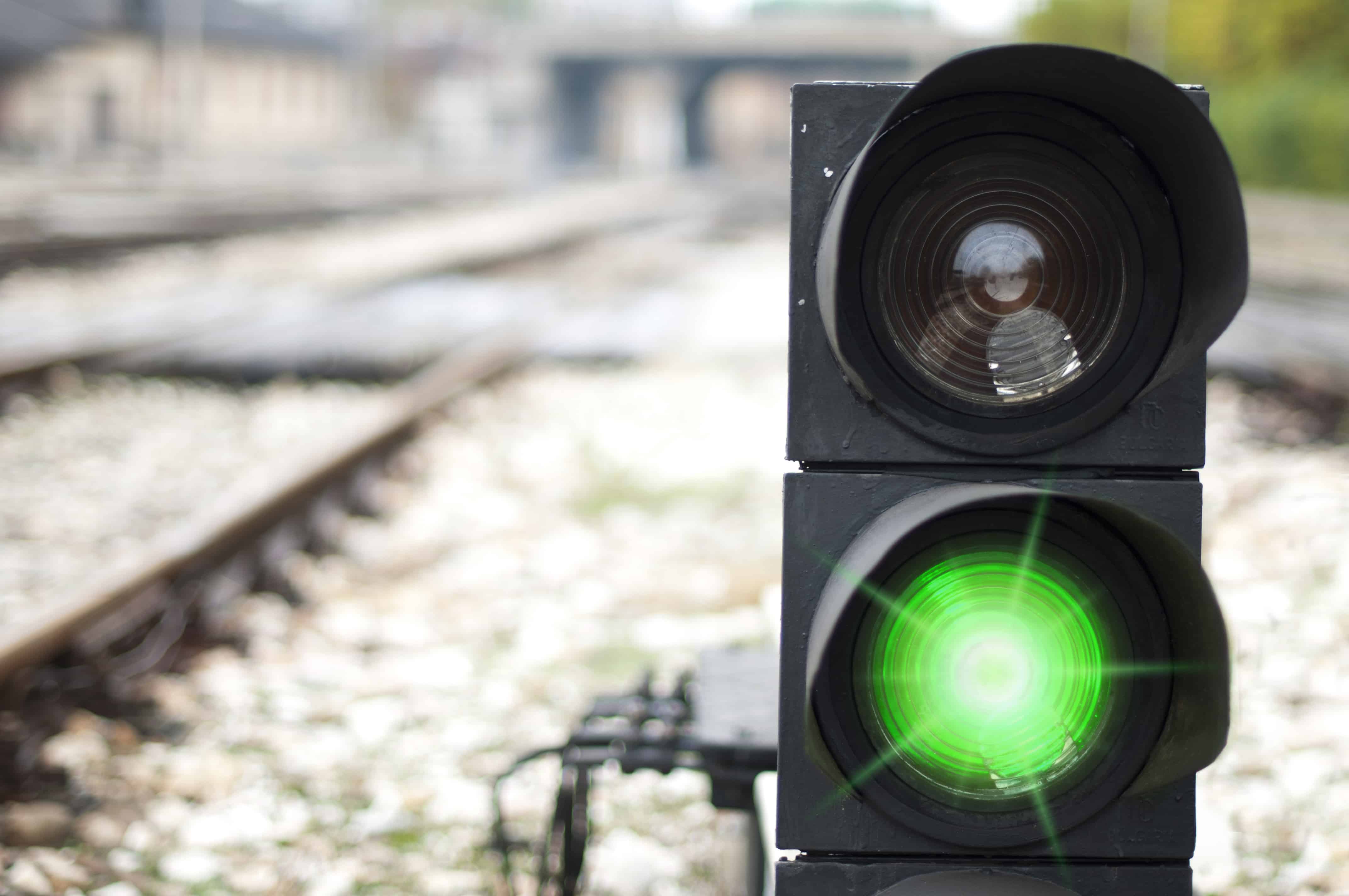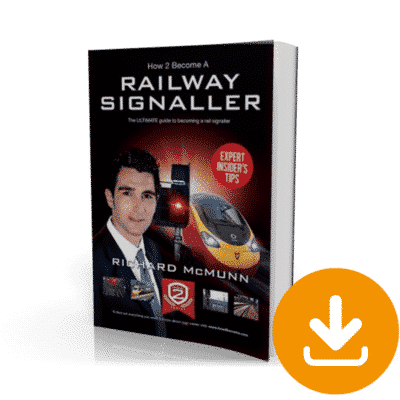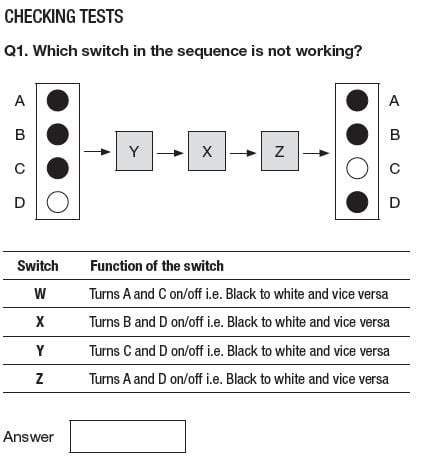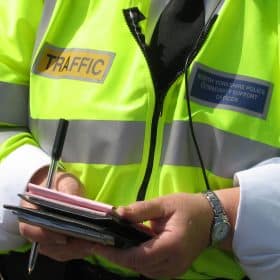How to become a Railway Signaller
Within this comprehensive download we will teach you how to become a Railway Signaller with Network Rail. The guide covers every element of selection, from how and where to apply, completing the application form for success, sample tests and achieving 100% at the interview.

In very basic terms, signallers operate the signals and points that help ensure the trains run safely and on time. It is a safety-critical role and you must be capable of working unsupervised whilst following strict procedural and safety guidelines. There is a tough selection process to pass and the information contained within our downloadable guide is guaranteed to help you succeed. In total, Network Rail recruits approximately 500 new signallers every year – so make sure you are 100% prepared for the selection process if you want to succeed. You will need to maintain high safety standards during both normal rail running procedures and also when there are incidents and disruption on the track. Disruption usually occurs when there are trespassers on a track or, more often than not, when a train is running late. Working as a signaller requires outstanding communication skills, a strong sense of responsibility, an ability to work under pressure and the ability to make systematic decisions in a timely fashion.
THE SKILLS AND QUALITIES REQUIRED TO BECOME A RAILWAY SIGNALLER
Whilst not exhaustive, the following list will give you a good idea of the types of skills, qualities and attributes required to perform the role competently. We recommend you take note of these, as you will need to demonstrate each and every one of them throughout the selection process.
- Excellent awareness of safety (being safety conscious).
- Outstanding communication skills.
- Capable of concentrating for long periods of time.
- Able to work alone, often unsupervised.
- Willing to learn and retain large amounts of job-specific information.
- Can work as part of a team.
- Mentally and physically fit.
- In good health.
- Effective listening skills.
- Able to interpret written and oral communication.
- Flexible and a willingness to work unsociable hours.
- Customer-focused.
- Able to remain calm and work under pressure.
The Selection Process








